
Electronic english version since 2022 |
The newspaper was founded in November 1957
| |
|
Number 36 (4633) |
School was a success!
From 12 to 16 September, JINR hosted a Scientific School for the students of the Children's University of the Academy of Scientific Research and Technology (Egypt). 12 students who had passed the competitive selection learnt about the research implemented at the Joint Institute, about our city and the sights of Moscow.
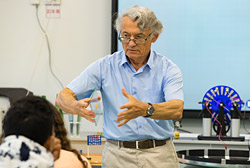 A significant amount of time in the School programme was dedicated to practical training in the engineering physics practicum, prepared by the staff of Yu.A.Panebrattsev (UC Department of development of educational programmes). Schoolchildren from Egypt visited their peers at the Lyceum named after Academician V.G.Kadyshevsky, where I.A.Lomachenkov (UC) demonstrated exciting physical experiments.
A significant amount of time in the School programme was dedicated to practical training in the engineering physics practicum, prepared by the staff of Yu.A.Panebrattsev (UC Department of development of educational programmes). Schoolchildren from Egypt visited their peers at the Lyceum named after Academician V.G.Kadyshevsky, where I.A.Lomachenkov (UC) demonstrated exciting physical experiments.
Before the ceremony on awarding certificates, some of the participants shared their impressions.
Hany Philopatir, 14 years old: I like physics and mathematics and I have always had a dream to go abroad to some school like this. When I saw the announcement of this event, I immediately applied. I think, participation in such a scientific school will help me in the future.
- Are you going to tie your future with science, engineering?
- Most of all I am interested in computers and programming. As you know, mathematics, programming and physics are closely interconnected and I would like to see science from all sides, to study all these areas.
- What do you remember most from the tours of the JINR Laboratories?
- Practicum. It is one thing when you watch and listen and quite another when you do something with your hands, putting into practice the knowledge you have just acquired.
- Are practical classes similar to these conducted in Egyptian schools?
- Yes, starting in the 10th grade. And I'm still in grade 9, so I was happy to participate in these workshops and I am looking forward to taking part in them at my school.
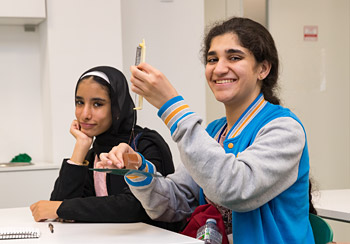 Haya Mahmood, 16 (on the right): I study nuclear physics and nuclear energy and I hope to work at the new El Dabaa nuclear power plant in Egypt when it's constructed.
Haya Mahmood, 16 (on the right): I study nuclear physics and nuclear energy and I hope to work at the new El Dabaa nuclear power plant in Egypt when it's constructed.
- Why nuclear physics?
- I learnt about it at our university. I like general physics, I like nuclear physics. When I found out about the competitive selection for this School, I took part in it and won and that's why I'm here. It was very interesting for me to learn more about nuclear physics, about the operation of accelerators, the collider. I have got a good experience, I have understood a lot in the basics of nuclear physics. I want to make new discoveries, do science. I hope to benefit my country.
Head of the Scientific School Professor Mona El-Naa: Here, in Dubna, children get a wonderful experience, not only in research areas, but also in social and life. They communicate with Russians, with JINR employees from other countries, immerse themselves in an unusual environment, learn about Russian culture - this is important for their personal growth, it opens their minds.
This is the second time Egyptian schoolchildren came to Russia. For the first time this Scientific School was held last year. We have received very good reviews based on its results, we have learnt about its amazing impact on our students. We are pleased with this result, so we have decided to develop our cooperation with JINR, we are going to hold this School next year, too, to involve more children in it.
- What are the challenges facing the children's university, opened under the Academy of Scientific Research and Technology?
- The university was organized in 2015, 40 Egyptian universities are involved in cooperation. Children study there for six years. The first two years they study medicine, arts, biology, astronomy and other subjects and the next four - the area they choose.
- You heard the children to exchange impressions during excursions. What did they like the most?
- Workshops, the opportunity to use devices, working with hands - this is the first part of the most vivid impressions. The second part is related to Russian culture, nature, weather, how Russian employees communicate with foreigners. An exciting part of this Scientific School was a visit to the Lyceum named after Academician V. G. Kadyshevsky and communication with his students. The children became friends, exchanged contacts, took joint selfies. They loved it so much that they didn't even want to leave.
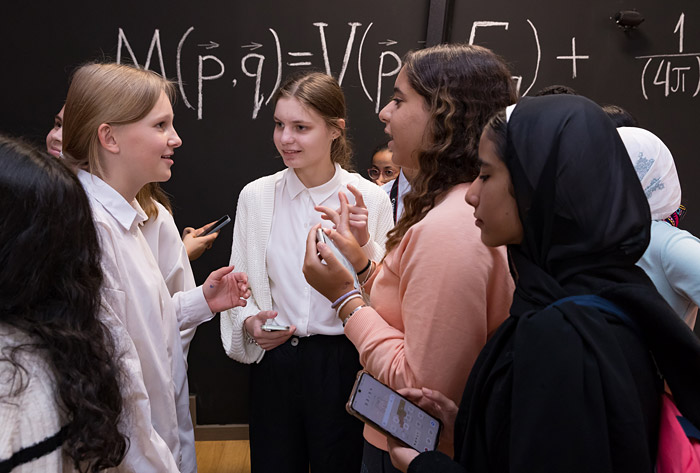
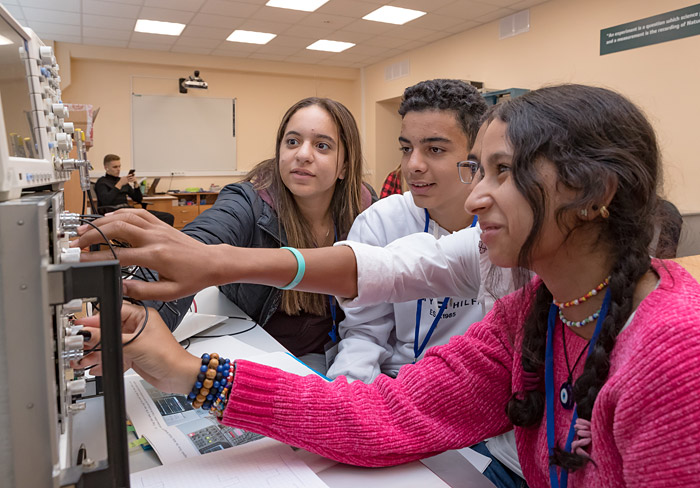
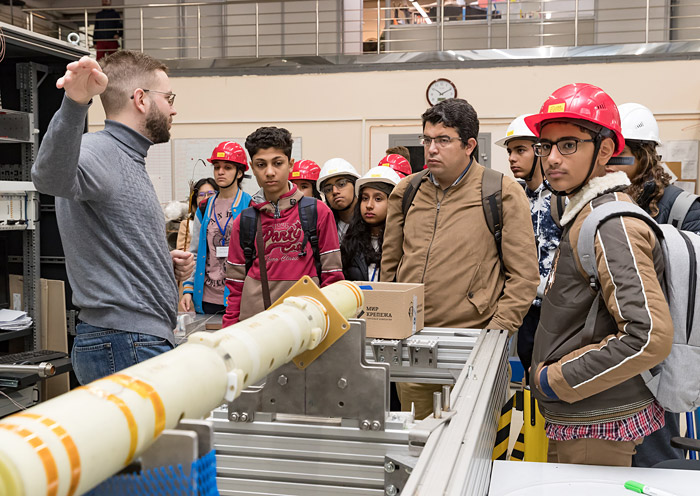
Olga Tarantina,
translated by Landysh Ramzdorf,
photo by Elena Puzynina